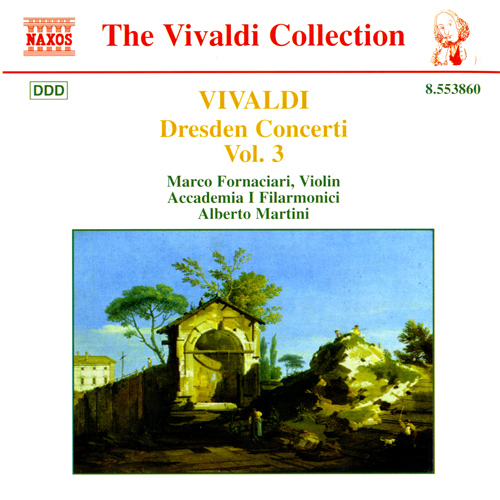VIVALDI: Dresden Concertos, Vol. 3
Tracklist
Stroissnig, Stefan (piano)
Stroissnig, Stefan (piano)
Stroissnig, Stefan (piano)
Stroissnig, Stefan (piano)
Stroissnig, Stefan (piano)
Stroissnig, Stefan (piano)
Rummel, Martin (cello)
Stroissnig, Stefan (piano)
Rummel, Martin (cello)
Stroissnig, Stefan (piano)
Rummel, Martin (cello)
Stroissnig, Stefan (piano)
Rummel, Martin (cello)
Stroissnig, Stefan (piano)
Stroissnig, Stefan (piano)
Stroissnig, Stefan (piano)
Stroissnig, Stefan (piano)
Stroissnig, Stefan (piano)
Stroissnig, Stefan (piano)
Stroissnig, Stefan (piano)
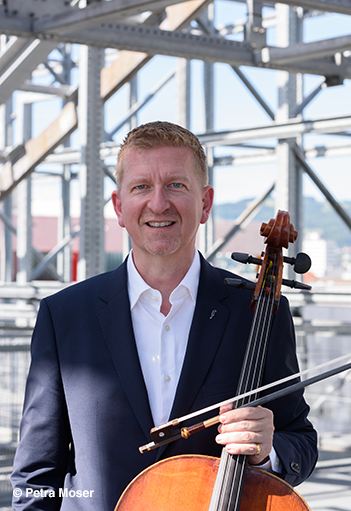
Austrian cellist Martin Rummel is far more than only a cellist: “Musician, cultural manager, academic, enjoying life”, is how he describes himself, albeit that playing the cello remains his “core business”. A growing number (currently more than 70) albums for various international labels result in ongoing praise from international press and audiences as well as his reputation as one of the leading cellists of his generation. Numerous premiere recordings and musical rediscoveries testify for Rummel’s belief that content is more important than packaging. “The big task for the next generation is to finally throw out the tuxedo, to focus on what and how music is made rather than on who plays where”, he says.
Martin Rummel is a regular guest of orchestras, festivals and venues across Europe, Asia, Oceania and the Americas, with conductors and chamber music partners of all generations. As a pedagogue, he has published a series of editions of all major cello etudes for Bärenreiter which have become standard worldwide. From 2015 to 2020, he was the Head of School at the University of Auckland’s School of Music and an honorary professor at the China Conservatory of Music. After one year as the CEO of Jam Music Lab, Europe’s only music university specialising in jazz and popular music, he has been President of the Anton Bruckner University in Linz since 2021. Being a passionate music communicator, he is a Founding Partner of HNE Rights (with five record labels and a publishing division), had his own radio shows since 2007, and writes and talks about music in many different formats.
Rummel is an alumnus of the Brucknerkonservatorium Linz and the Cologne Musikhochschule. His heart lies in a playing tradition that was conveyed to him during a decade of studies with the legendary William Pleeth, always focusing on the music, not the musician.
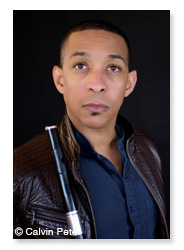
Eric Lamb is in demand internationally as a soloist, recitalist, concert curator and chamber musician. From 2007 to 2012, Eric performed extensively as a core member of the New Yorkbased International Contemporary Ensemble (ICE), and he has been a guest with ensembles, orchestras and at major festivals all over the world. He continues to work closely with leading composers and conductors while exploring performance techniques and practices throughout the entire scope of the repertoire, including recent recordings and editions of solo flute works by Johann Joachim Quantz and Johann George Tromlitz.
Eric completed his undergraduate studies at the Oberlin Conservatory of Music as a student of Michel Debost followed by graduate and postgraduate studies at both the Hochschule für Musik, Frankfurt am Main and the Scuola di Musica di Fiesole, Italy, with Thaddeus Watson and Chiara Tonelli. Besides giving masterclasses all over the world, Lamb’s busy concert schedule includes concerto engagements and chamber music festivals throughout Europe.
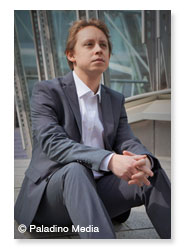
Born in 1985, Austrian pianist Stefan Stroissnig studied with Oleg Maisenberg in his hometown of Vienna as well as with Ian Jones at the Royal College of Music in London, and received further artistic inspiration from renowned pianists including Daniel Barenboim and Dmitri Bashkirov.
His concert activity as a soloist has taken him all over the world. He has performed in the most prestigious concert houses in Europe, including the Musikverein Wien and the Berlin Philharmonie, and in 2013 he was the soloist in Messiaen’s Turangalîla-symphonie at the Royal Festival Hall, London.
Chamber music is of great importance to him, which has led to co-operation with musicians such as Heinrich Schiff, Nobuko Imai and Shmuel Ashkenasi. He has been invited to appear at the Salzburg Festival, the Carinthian Summer Music Festival and the Ruhr Piano Festival among others.
His recording of works by Franz Schubert and Franz Liszt was awarded the Pasticcio Prize by Austrian radio station Ö1. Aside from his concert activity, he teaches at the University of Music and the Performing Arts in Graz, Austria. His contribution to the international musical world has earned Stroissnig a nomination for the Credit Suisse Award in 2014 by the Vienna Philharmonic.
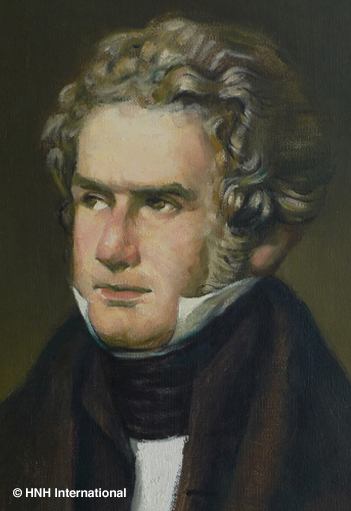
Widely known for his reminiscences of Beethoven, Ferdinand Ries belonged to a family which, like Beethoven’s, had a long connection with the musical establishment of the Archbishop-Elector of Cologne in Bonn. He studied the piano and violin with his father, who taught Beethoven and helped the latter’s family after their mother’s death. Ries studied briefly with Peter von Winter in Munich and then spent a period in Vienna, where he had piano lessons from Beethoven and lessons in theory and composition from Albrechtsberger. He established himself as an interpreter of Beethoven’s music, assisting him in various ways as a copyist and proof-reader. In 1809 he left Vienna on a series of concert tours in Germany, Russia, Scandinavia and, eventually, London, where he spent 11 years, until 1824. For several seasons he directed the Lower Rhine Festival and was able to carry out further concert tours.
Vocal Music
Ries wrote operas, part-songs and a quantity of solo songs, setting texts in various languages. His choral music includes masonic cantatas, an oratorio and a Requiem.
Orchestral Music
Ries’s orchestral music includes symphonies and overtures, as well as eight piano concertos—one a ‘Farewell to London’ in 1824, and another a ‘Salut au Rhin’ or ‘Gruss an den Rhein’.
Chamber Music
Ries was said by Beethoven to imitate him too much, a judgement that may seem harsh. As a performer Ries was highly esteemed and after leaving Vienna established himself in independence of his teacher. His chamber music includes works for ensembles of all kinds, from an octet and a septet to a series of duo sonatas, many of the last for violin and piano but with alternative instrumentation for flute or clarinet.































